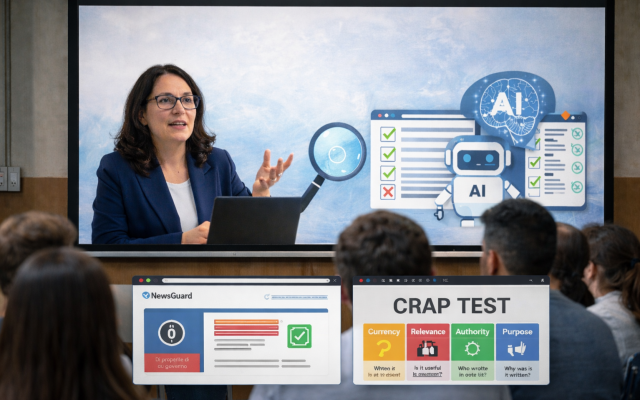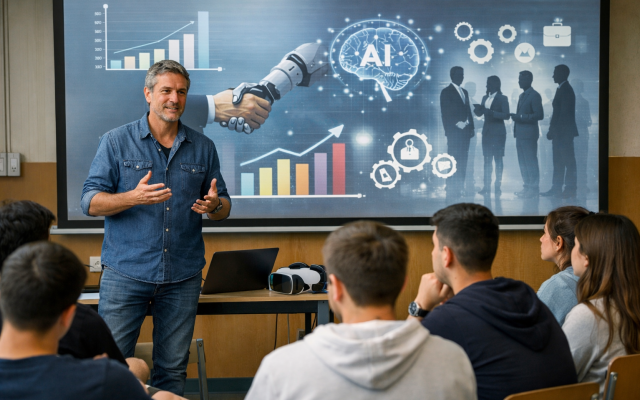Here is our last weekly appointment with the “Our School” Professors before the summer break. We travel to the Trentino to meet a freelance steam educator Silvia Franceschini. Silvia, who has a degree in Mathematics and loves arts, origami, theatre, and paradoxes, works on STEM didactics with enterprises, museums, and associations. And, of course, she is collaborating with other “Our School” Professors on creating an app to teach sciences.
As usual, we share a short presentation video and then an interview conducted by Ilaria Gaudiello, who coordinates the works of the open source community of teachers and educators.
INTERVIEW
Silvia, in your career as a teacher and educator, you have often held courses blending scientific thought, technology and creativity. How does all of this converge towards your interest in artificial intelligence?
Artificial intelligence is fascinating above all because it requires multidisciplinary skills. Speaking about it means being able to cover a variety of different aspects that range from mathematics to ethics and legislation. It helps us reflect on how our human intelligence works, but also on how we can identify new and creative solutions to problems.
This year, your experience with the Fondazione Mondo Digitale’s “Our School” has seen you work on an app for teaching sciences. What key aspects of this experience would you like to highlight?
I believe the most interesting aspect is working with colleagues from many different areas, who probably would never have otherwise met. Our group turned out to have the same interests and this helped us conceive a course with enthusiasm, facing any challenge whether it was a technical or a scheduling problem. We experienced that when a group is tight and is working on a valid project, any problem can be overcome. The group, the network, the community gave us the energy necessary to accomplish our goal. Every time we met, we spoke about our individual achievements in the classroom, and it was surprising, every time, with news and unexpected breakthroughs.
Museums and nature, applied science and theoretical mathematics, technology, and unplugged activities … Your teaching practices include both indoor and outdoor activities, logical reasoning and experimentation, digital and tangible objects. Is this the school that you hope for?
Absolutely! I believe the key point today is that we must understand that attending school is not about studying for tests but acquiring elements that will help reflect on the world. I believe it is so important to think and act outside of the box in class. We must allow students to be actively involved in planning, discussing what they are doing, even working with different classmates. And extracurricular activities are just as important: experiments at home or with the community can provide excellent inputs for them.



